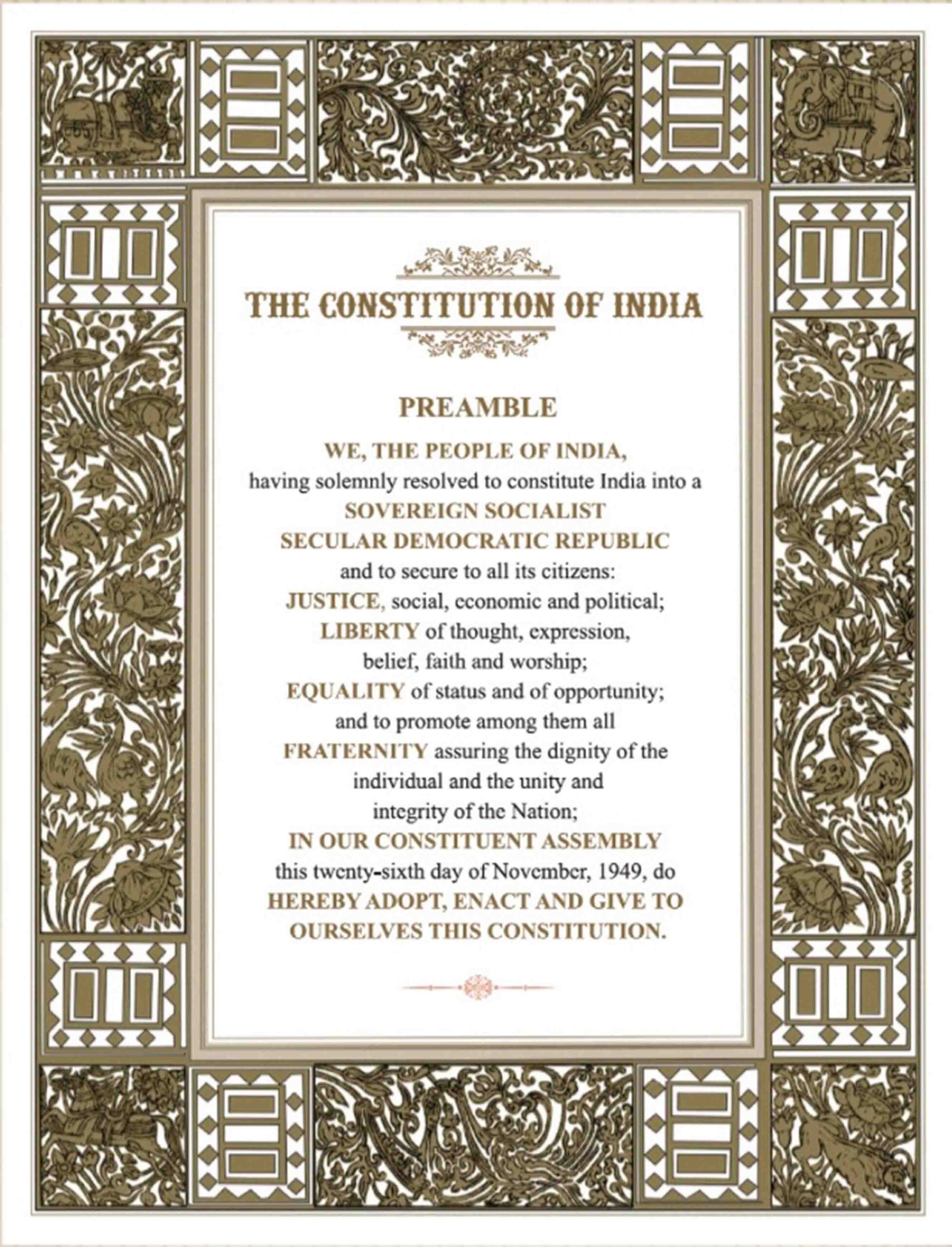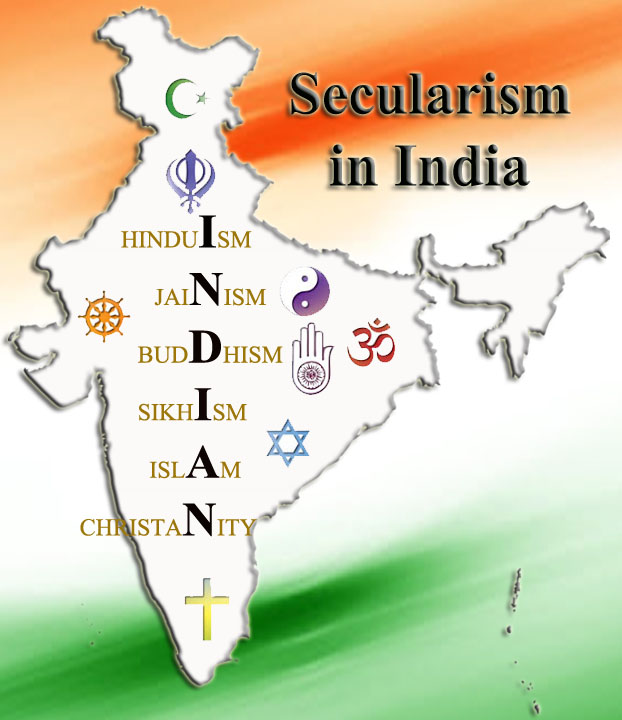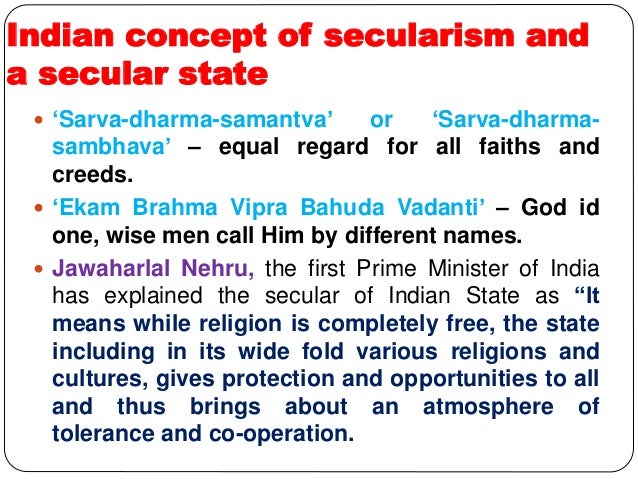Indian Preamble : Socialist And Secular Presentation
| Introduction to Indian Preamble: Socialist and Secular | ||
|---|---|---|
| The Indian Preamble is an introductory statement to the Constitution of India. The Preamble declares India as a sovereign, socialist, secular, and democratic republic. It embodies the ideals and objectives of the Indian Constitution. | ||
| 1 | ||
| Socialist Nature of the Indian Preamble | ||
|---|---|---|
| Socialism in the Indian Preamble emphasizes the pursuit of social and economic equality. It aims to reduce inequalities in wealth and ensure a just distribution of resources. The state plays a significant role in promoting social welfare and protecting the rights of vulnerable sections of society. | ||
| 2 | ||
| Significance of Socialism in the Indian Preamble | ||
|---|---|---|
| Socialism in the Indian Preamble reflects the commitment to social justice and inclusivity. It aims to eradicate poverty, reduce wealth disparities, and provide equal opportunities for all. The state is responsible for implementing policies that promote equitable development and reduce socioeconomic inequalities. | ||
| 3 | ||
| Secular Nature of the Indian Preamble | ||
|---|---|---|
| Secularism in the Indian Preamble guarantees religious freedom and equality for all citizens. It ensures that the state remains impartial and does not promote any specific religion. India respects and protects the rights of individuals to practice and propagate their religion freely. | ||
| 4 | ||
| Importance of Secularism in the Indian Preamble | ||
|---|---|---|
| Secularism in the Indian Preamble promotes religious harmony and unity among diverse communities. It safeguards the principle of equality by treating all religions equally. The state does not discriminate based on religion and ensures a secular approach in governance and public life. | ||
| 5 | ||
| Relationship between Socialism and Secularism in the Indian Preamble | ||
|---|---|---|
| The concepts of socialism and secularism in the Indian Preamble are intertwined. Both emphasize equality, justice, and the welfare of all citizens. They aim to create a society that is inclusive, just, and free from discrimination. | ||
| 6 | ||
| Constitutional Provisions Supporting Socialism | ||
|---|---|---|
| Article 38 of the Indian Constitution directs the state to promote the welfare of the people. Article 39 ensures equitable distribution of resources and prevents the concentration of wealth. Article 46 promotes the educational and economic interests of weaker sections of society. | ||
| 7 | ||
| Constitutional Provisions Supporting Secularism | ||
|---|---|---|
| Article 25 guarantees the freedom of conscience and the right to freely profess, practice, and propagate religion. Article 26 grants religious denominations the freedom to manage religious affairs. Article 27 prohibits the state from levying taxes for the promotion or maintenance of any particular religion. | ||
| 8 | ||
| Impact of Socialist and Secular Principles in Indian Society | ||
|---|---|---|
| The socialist and secular principles in the Indian Preamble have played a crucial role in shaping Indian society. They have contributed to the development of welfare schemes, affirmative action, and social justice initiatives. These principles have fostered unity and harmony among diverse religious, social, and economic groups. | ||
| 9 | ||
| Conclusion | ||
|---|---|---|
| The socialist and secular nature of the Indian Preamble reflects the commitment to a just and inclusive society. These principles have guided the formulation and implementation of policies that aim to reduce inequalities and promote religious harmony. They continue to be the guiding principles for India's progressive and democratic development. | ||
| 10 | ||
| References (download PPTX file for details) | ||
|---|---|---|
| Ministry of Law and Justice, Government of In... Your second bullet... Your third bullet... |  | |
| 11 | ||







